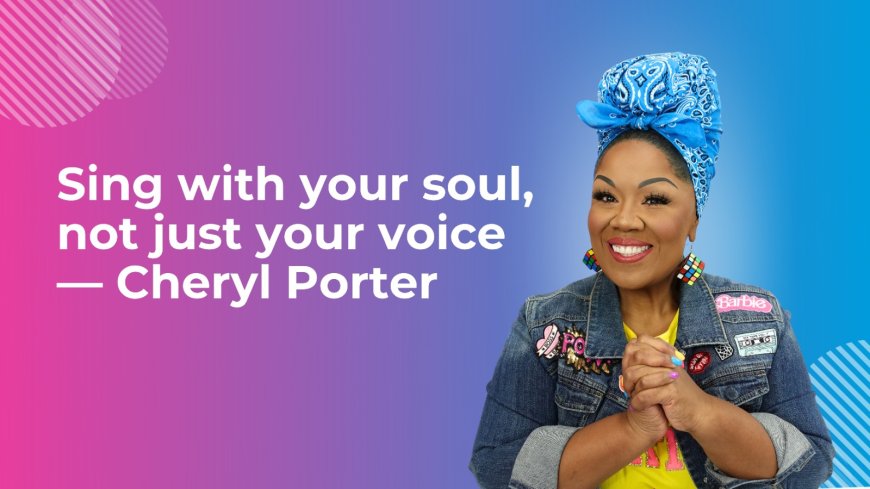No Talent? No Problem. Here’s How to Learn to Sing Anyway
Think you need natural talent to sing? You don’t. Discover how to learn singing from scratch and grow your voice with simple, smart steps.

How many times have you said or heard someone say I wish I could sing, but I wasnt born with the talent? This belief holds people back more than anything else.
But heres the truth: you dont need natural talent to learn how to sing. You need structure, practice, and patience. Singing is a skill that improves the more you use it.
If youve never trained before, now is the perfect time to learn singing from scratch. It doesnt matter how you sound today what matters is what youre willing to work on consistently.
Talent vs. Technique: Why the Difference Matters
Natural vocal talent can be helpful, but its not essential. In fact, singers who rely solely on talent often develop poor technique. On the other hand, beginners who start with no expectations and focus on building skills from the ground up usually end up with stronger control and vocal health.
You can absolutely become a great singer by focusing on technique, repetition, and listening skills even if you start with zero experience.
Step One: Build a Daily Routine
You dont need to dedicate hours a day. Even 15 minutes of consistent practice can make a huge difference. Heres a basic framework for beginners:
-
5 minutes of breathing exercises (in through the nose, out through the mouth, expanding your belly)
-
5 minutes of vocal warmups (lip trills, sirens, humming)
-
5 minutes of pitch-matching or singing short lines from a song
Start small, and increase your time as it becomes a habit.
Step Two: Understand Your Voice
Your voice is a physical instrument. Like any instrument, you need to learn how it works. Pay attention to:
-
Breath control Use diaphragmatic breathing for stability
-
Resonance Feel where sound vibrates in your face and chest
-
Tension Stay aware of neck, jaw, and shoulder tightness
-
Tone Record and play back to learn how your voice actually sounds
These awareness tools help you grow faster and avoid harmful habits.
Step Three: Focus on These Three Core Skills
1. Pitch Accuracy
Train your ear to match sounds. Use a piano app or pitch generator. Play a note, sing it back, and check if it matches. Repeat until it feels easier.
2. Breath Support
Your voice rides on breath. Without steady airflow, notes sound weak or shaky. Practice slow inhales and long, steady exhales with soft sounds like sss or zzz.
3. Smooth Transitions
Use exercises like ng slides or vocal sirens to connect notes from low to high. This builds your range gradually without forcing.
Common Beginner Challenges (And How to Fix Them)
I Hate the Sound of My Voice
Youre not alone. Most people are shocked when they hear recordings of themselves. But the more you record and listen, the more comfortable (and in control) youll become.
I Run Out of Breath
This usually means youre not breathing deeply or supporting your tone. Practice belly breathing and aim for smooth exhalation.
I Cant Hit High Notes
Dont try to force them. Use sirens and scales to build flexibility. Your range will improve naturally with time.
I Get Nervous Even Practicing
Sing alone, with the door closed, or in the car. Privacy helps you relax and grow confidence slowly.
Week-by-Week Starter Plan
Week 1:
-
Breathing practice
-
Basic humming and lip trills
-
Pitch-matching 3 notes
Week 2:
-
Add slides (ng and sirens)
-
Match up to 5 notes
-
Sing short phrases (23 lines of a favorite song)
Week 3:
-
Start learning about range (low vs. high comfort zones)
-
Sustain notes for length and tone
-
Record and listen once a week
Week 4:
-
Full warmup routine (1015 mins)
-
Sing a verse or chorus
-
Add dynamics (louder/softer contrast)
Progress Looks Like This
Dont wait for a magical breakthrough moment. Instead, notice:
-
Better control on long notes
-
More accurate pitch
-
Smoother transitions between low and high
-
More comfort hearing your own voice
-
A growing desire to sing more
These are signs that what youre doing is working.
Final Thoughts: Your Voice, Your Timing
You dont need to be born with a golden voice. You dont need to start young. You just need to begin.
Learning to sing is about consistency, curiosity, and small steps that lead to big changes. Your voice is ready when you are.
Start today and dont stop.




































